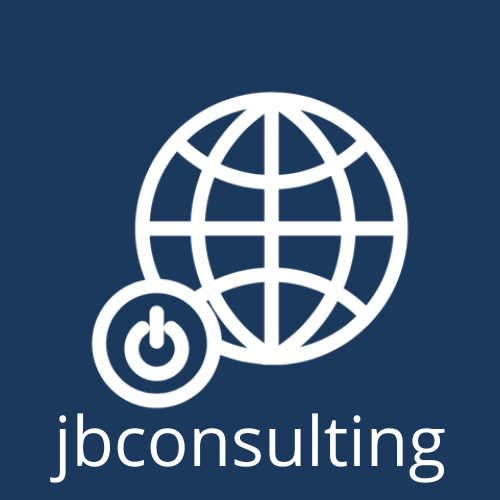Connecting Insurtechs and Insurers: Independent consultants and their value for the international commercial lines space
The role of an independent consultant
Even after decades dealing with international commercial lines insurance, I continue to be excited about the complexity of but also the developments in this space. The public usually gets little notice of these developments and even industry experts are first targeting the personal lines or life industry.
As a lot is happening behind the scenes, I would like to draw your attention to the underwriters’ current challenges, where insurtechs could help addressing these challenges and most importantly, how an independent consultant can be of great value to support the stakeholders.
Commercial lines underwriters need to juggle a large number of topics in an increasingly complex environment. Here are some typical issues faced by them:
- Risk Assessment which includes assessing the nature of the business, industry trends, claims history, financial stability, and potential exposures.
- Pricing and Profitability
- Changing Market Conditions: Underwriters must stay up to date with market trends, regulatory changes, emerging risks, and economic factors that may impact the pricing and underwriting decisions.
- Emerging Risks: New and evolving risks, such as cyber threats, climate change-related perils, changed mobility behavior, supply-chain management and reputational risks. Understanding these emerging risks and effectively underwriting policies to address them is essential to mitigate potential losses.
- Underwriting Guidelines and Compliance: Ensuring consistency and uniformity in underwriting decisions while keeping up with evolving regulations can be demanding.
- Data Analysis and Technology: Leveraging data analytics and technology tools to analyze and interpret data efficiently is crucial for effective risk assessment, pricing, and decision-making. Staying updated with technological advancements is vital to enhance underwriting capabilities.
- Customer Relationships and Communication
- Claims Management
Insurtechs can play a significant role in addressing the challenges faced by underwriting (and also claims and pricing) functions. Here are some ways in which insurtechs can contribute:
- Data Analytics and Automation: Develop advanced data analytics tools and automate processes to help underwriters analyze vast amounts of data more efficiently. These tools can assist in risk assessment, pricing models, and identifying emerging trends, enabling underwriters to make more informed decisions.
- Artificial Intelligence and Machine Learning: Leverage artificial intelligence (AI) and machine learning (ML) algorithms to enhance underwriting processes. AI-based models can analyze historical data, identify patterns, and predict future risks, thereby improving accuracy and efficiency in risk assessment and pricing.
- Digital Platforms for Underwriting: Develop digital platforms that streamline the underwriting process, providing a centralized system for underwriters to access and evaluate data, collaborate with stakeholders, and generate quotes. These platforms can automate routine tasks, reduce administrative burdens, and enhance communication between underwriters, brokers, and insured parties.
- Enhanced Risk Mitigation: Offer innovative risk mitigation tools such as IoT (Internet of Things) devices, sensors, and real-time monitoring. These technologies can help underwriters assess risks more accurately, monitor insured properties or assets, and potentially prevent losses or reduce the impact of claims.
- Claims Management Automation: Develop digital claims management systems that streamline the claims process, automate claims assessment, and improve efficiency. AI-powered algorithms can analyze claim data, detect fraudulent claims, and expedite the claims settlement process.
- Telematics and Usage-Based Insurance: Provide insurers with data on driving behavior, vehicle usage, and other factors to develop usage-based insurance (UBI) products. This data can help motor fleet underwriters and managers assess risks more accurately and price policies based on actual usage patterns, promoting more personalized insurance offerings.
- Collaborative Partnerships: Collaborate with traditional insurance carriers and underwriting teams to integrate innovative solutions into existing workflows. By working together, insurtechs and insurers can leverage each other's strengths and capabilities, leading to improved underwriting, claims management, and pricing processes.
Now, how can independent consultants connect both worlds? The experts who have typically worked with insurers in underwriting, claims and pricing functions, tech companies and startups speak both languages. They can therefore assist in several ways:
- Industry Knowledge and Expertise: Independent consultants and experts possess in-depth knowledge of the insurance industry, including relevant practices. They understand the specific challenges and pain points faced by underwriting and can provide valuable insights and guidance to both insurtechs and insurance organizations.
- Technology Evaluation and Selection: Insurtech landscape is vast, and choosing the right technology solutions can be overwhelming for insurance companies. Independent consultants and experts can assess and evaluate different insurtech offerings, helping business functions to select the most suitable solutions based on their specific requirements, budget, and implementation capabilities.
- Needs Assessment and Solution Design: Independent consultants can work closely with underwriting teams to assess their current processes, identify pain points, and determine the areas where insurtech solutions can provide the most value. They can then assist in designing or finding tailored solutions that address these needs effectively, aligning with the organization's goals and objectives.
- Vendor Management and Collaboration: Help facilitate effective communication and collaboration between insurtechs and the insurers’ business functions. They can act as a bridge, managing the relationship between the two parties, ensuring clear expectations, and facilitating productive collaboration throughout the implementation process.
- Change Management and Training: Implementing new insurtech solutions often requires changes to existing processes and workflows. Independent consultants can support insurance organizations in managing this change by developing change management strategies, providing training to the underwriting teams, and helping them adapt to the new technologies and processes seamlessly.
- Performance Monitoring and Optimization: After the implementation of insurtech solutions, consultants can assist in monitoring the performance of these solutions and their impact on business functions. They can help identify areas for improvement, optimize processes, and ensure that the intended benefits are being realized.
- Market Insights and Trends: Independent consultants stay updated with the latest trends, innovations, and market dynamics in the insurance and insurtech sectors. They can provide valuable insights into emerging technologies, regulatory changes, and industry best practices, helping insurers stay ahead of the curve and make informed decisions.
Overall I strongly believe, independent consultants and experts bring industry-specific knowledge, objective perspectives, and specialized skills to help bridge the gap between insurtechs and underwriting, claims, and pricing functions in the commercial lines space. Their expertise can facilitate successful collaborations, efficient technology adoption, and improved operational outcomes for insurance organizations and the insurtech they partner with.





